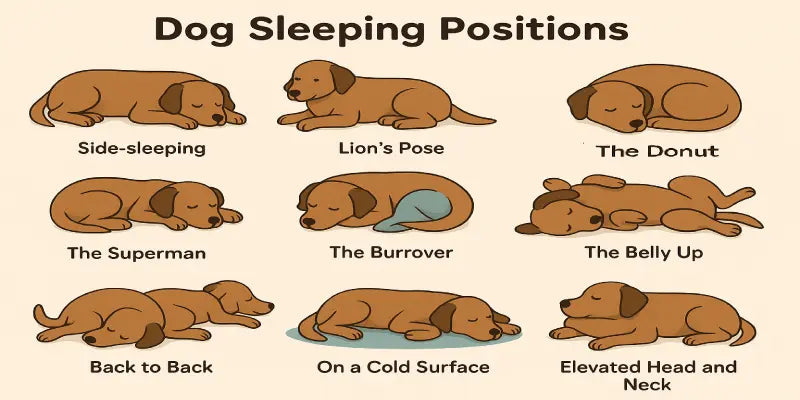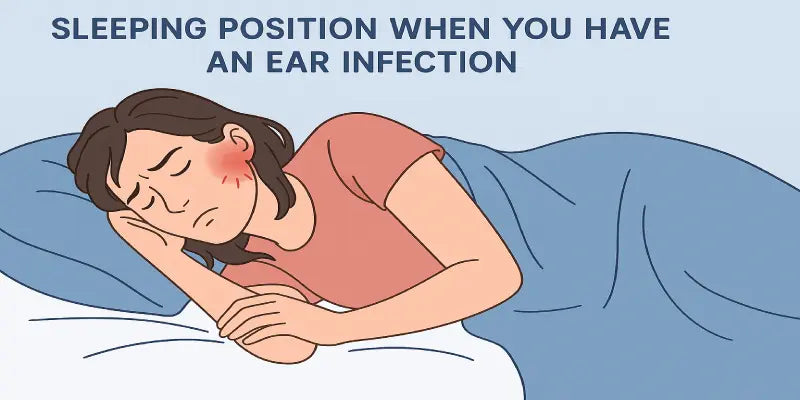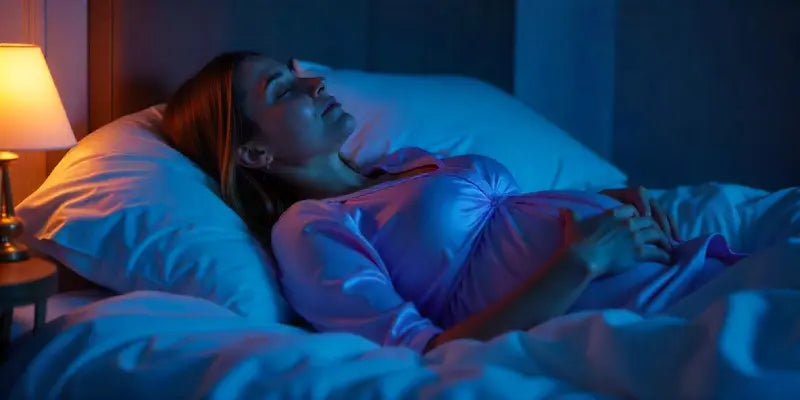
How Much Sleep Do We Really Need
Getting the right amount of sleep has been a controversial topic among experts and laypeople alike, but new studies have shed some light on how much sleep we should be getting. A blog article with information on how many hours of sleep we should get and what pillow we should use.
Introduction
There’s a lot of debate on how many hours of sleep people should be getting each night. Some say eight, others say 10. But what’s the right number? And which pillow should you use to get that sleep? In this post, we’re going to break down the silence behind how much sleep you need and give you some recommendations on pillows to help you get the sweet slumber that your body deserves.
First, let’s take a look at what impacts the amount of sleep we get each night. The amount of sleep we get is impacted by a few things: our environment (stressful events during the day can impact how well we fall asleep), our genetics (how easily we nod off), and our hormones (menopause can lead to increased insomnia). However, it’s most definitely impacted by our daily schedule. Our schedule has two main components: Our Sleep Schedule and Our Activity Schedule.
Our Sleep Schedule is made up of our bedtime and wake time. During bedtime, we try to go to bed at a specific time and wake up at a specific time every day. This helps us have consistent energy throughout the day and gives us an idea of when our body is ready for more activity or rest. For example, if your bedtime is 8pm but you work a 9am-5pm job, your Activity Schedule will override your Sleep Schedule and you will be waking up earlier than normal in order to make sure you’re getting enough sleep.
Our Activity Schedule is made up of the things we do during the day. During the day, we have a variety of activities that can impact how well we sleep at night. For example, if we’re working on a project at work that requires lots of concentration, that activity will likely keep us from falling asleep at bedtime. Alternatively, if we’re watching TV before bed, that activity will keep us from falling asleep. Our Activity Schedule is often influenced by our surroundings and can be changed based on our current environment.
What Does Sleep Do For Our Body?
Sleep is essential for our overall health. It allows the body to rest and rejuvenate, and helps to improve mental clarity and focus. A good night’s sleep can help reduce fatigue, anxiety, and depression symptoms, as well as improve memory recall.
There are a lot of myths about sleep that have been passed down from generation to generation. Some people believe that if they only get six hours of sleep a night, they will be super humanly productive the next day. Others think that if they only use one type of pillow, they will get the best sleep. However, the truth is that there is no one magic number or type of pillow that will guarantee perfect sleep for everyone.
The amount of sleep your body needs varies depending on factors such as age, sex, weight, fitness level, etc. The American Academy of Sleep Calculator recommends 7-8 hours of sleep each night for adults. However, if you are an unhealthy individual with a poor diet or insufficient exercise habits, you may need up to 10 hours of sleep per night in order to recover properly from workouts and other physical activity.
In addition to actual hours slept, quality of sleep also matters. People who get less than 5 hours of quality sleep each night are at risk for developing chronic health problems such as obesity and heart disease. It’s important to find a comfortable bedtime routine that includes winding down for 30 minutes before going to bed and avoiding screens in between sleeping periods for optimal snooze time.
The Importance of Sleep in Everyday Life
Sleep is an essential part of everyday life. Not getting enough sleep can have serious consequences, such as decreased productivity, mood swings, and even accidents. There are a lot of different ways to get enough sleep, and the amount of sleep you need varies depending on your age, sex, lifestyle, and health condition. Here are some tips on how to get the sleep you need:
- Make sure you have a good bed and mattress. Sleeping on a bad bed or mattress can cause your body to ache and your dreams to be disturbed.
- Avoid caffeine after lunchtime. Caffeine is a stimulant, which can make it harder to fall asleep later in the night.
- Avoid screens before bedtime. Screens emit blue light that can keep you awake for hours after you're done using them. To avoid blue light exposure before bedtime, try installing an app like f.lux or using Incandescent light bulbs instead of LED lights when working in the evening.
- Take breaks throughout the day to relax and wind down. Taking regular breaks can help you avoid feeling overwhelmed during the rest of your day.
- Practice stress management techniques before bedtime. Relaxing activities like yoga or meditation can help reduce anxiety and prepare your mind for sleep.
How Many Hours of Sleep Should We Really be Getting?
The National Sleep Foundation (NSF) recommends that adults get at least 7 hours of sleep each night. However, some people may be able to get by with less sleep. The amount of sleep you need and the type of pillow you should use depends on your individual sleeping habits and body type.
Here are three tips to help you get a good night's sleep:
- Track your sleep habits. If you're having trouble getting enough sleep, try keeping track of how many hours of sleep you're actually getting each night. This will help you determine whether you need more or less sleep.
- Consider using a pillow that supports your neck and spine. A pillow that supports your neck and spine can help improve your chances of getting a good night's sleep because it reduces pressure on your spinal cord and cervical vertebrae, which can cause pain or discomfort in the neck or head area.
- Experiment with different types of pillows until you find one that works best for you. There are lots of different types of pillows on the market, so try out several before settling on one that feels comfortable and helps you fall asleep quickly.
Which Pillow Should You Use?
Do you toss and turn all night because you can't get comfortable? If so, you might be using the wrong pillow. Here's a guide to help find the perfect one for your sleep habits.
Pillow types: There are three main types of pillows: traditional, memory foam and custom-made.
Traditional pillows are made from materials like down or feathers and are filled with air. They're soft and squishy, which makes them great for people who like to snore or sleep on their side. They're not the best option if you need support while sleeping on your stomach or if you tend to toss and turn a lot.
Memory foam pillows are made from polyurethane and have viscoelastic properties that make them contour to your head and neck. They're denser than traditional pillows and provide more support. However, they can be hard to move around in bed, which may not be ideal if you're a light sleeper or prefer to change positions often during the night.
Custom-made pillows are made specifically for each person's head shape and size. This means that they'll be softer than traditional pillows but will provide more support.
A highly recommended pillow: Sleepsia Full Body Pillow
Look no further than the Sleeper Body pillow. This memory foam filled product promotes side sleeping and reduces snoring. It's an excellent companion for anyone, as it can be used both as a standard body pillow size or a pregnancy version. Long, shredded memory foam pillows provide convenience for side sleepers who need additional support and help them live a more comfortable life. They're specifically designed to fit your existing contour and help relieve pressure in the body that can be caused by many other things. Sleepsia Leg Pillows use shredded memory foam to provide evenly support and comfort during sleep. They also feature viscoelastic material, which is designed to curve with the natural shape of your body and promote good alignment for your legs, back, and hips.
These quality-assured body pillows can't get comfier than this! They're filled with foam made from recycled material, and they're tested before they hit the market. If you can even detect a faint smell on them when they arrive, remove the cover and your worries are over in 24 to 36 hours.
Conclusion
The amount of sleep that we need each night varies from person to person, depending on a variety of factors. However, the National Sleep Foundation (NSF) recommends that adults get at least seven hours of sleep every night. So whether you're a light sleeper or an average sleeper, make sure to aim for at least seven hours of sleep every night. Not getting enough sleep can have serious consequences, both physically and mentally. so try to get as much rest as you can each night!








